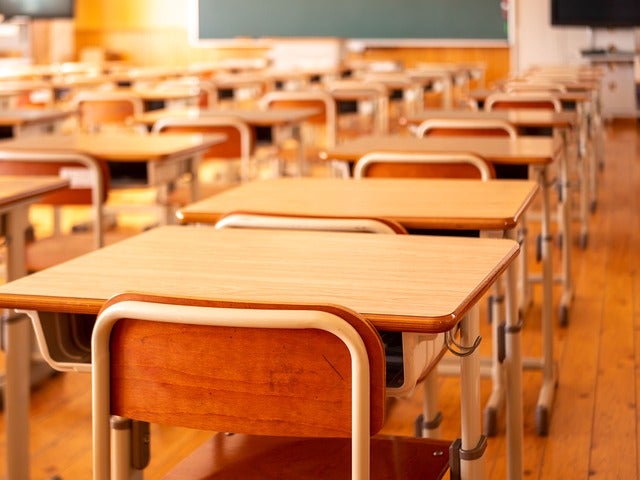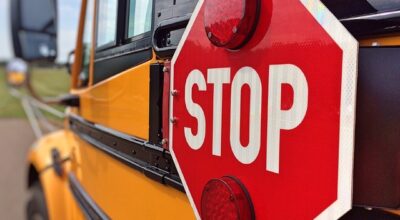Private schools keep numbers
Published 5:23 pm Tuesday, October 4, 2016

- Paul Zanowski
Enrollment figures across the Heart of Virginia show parents are continuing to choose a wide variety of academic avenues for their children outside of public education, including private Christian schools, independent schools and homeschooling.
Private schools are defined as any school that is not public. To be considered an independent school, the facility has to be accredited by an accredited body. In Virginia there are multiple associations responsible for accrediting schools, such as the Virginia Association of Independent Schools (VAIS) and Virginia Independent Schools Association (VISA).
The enrollment at Kenston Forest School, in Blackstone, has stayed fairly constant, with only 15 fewer students this year than five years ago. Compared to last year, Kenston has 23 more students, with a student population of 273.
Kenston Headmaster Paul Zanowski attributed the increased enrollment to “the improvement of all aspects of our school, ranging from the physical plant, transportation and technology to the academic, athletic and student support programs.”
Head of Fuqua School John Melton said this process creates a standard one can expect to encounter from independent schools, much like similar accreditation processes in the public school system.
According to figures The Farmville Herald compiled, most private and independent schools haven’t seen a significant increase or decrease in enrollment during the past five years.
The enrollment at Fuqua School, in Farmville, has declined slightly during recent years, with its student population dropping from 382 during the 2012-2013 school year to 352 students this year. However, Melton said the school recently stopped providing Pre-K2 (preschool for children 2 years of age), which he said accounts for the decrease.
Central Virginia Christian School (CVCS), in Dillwyn, has seen similar enrollment
population has been gradually increasing, from 121 students in 2012 to 149 students now, according to CVCS Administrator Cherie E. Brickhill.
Regionally, parents and students are still feeling the effects from the recent closure of New Life School. The school, which opened its doors in 1985, held its final graduation in May.
Former New Life School Administrator Betty Weaver said the two critical pieces to a private school’s success are community support and financial backing.
When a private school is able to obtain both the support of the community and proper funding, she said, the school should flourish.
“Over the past 10 years, I have seen a significant reduction in community support and parental support for private education,” Weaver said.
She said she thinks the economy plays a large part in parents’ decisions. She said there are many needs that often take priority.
“(But) education should receive top billing in any community,” Weaver said.
Brickhill said the key to success is staying focused on mission and values.
“Everything the school does must be consistent with the school’s mission, and the core values must drive decisions, communication and instruction,” Brickhill said.
Students came to New Life from Cumberland, Prince Edward, Buckingham, Nottoway, Charlotte and Amelia counties. In the wake of the school’s closure, those students are now attending Cumberland, Prince Edward and Buckingham County public schools, as well as Fuqua School. Some chose to homeschool, Weaver said.
Annabelle Rodriguez-Milligan chose for her son to attend Fuqua when he was displaced by the closure.
“After much prayer, thought and research I found Fuqua to have the values, mission and qualities that I was looking for in a school for my son Joshua’s education,” Rodriguez-Milligan said.
According to Melton, the mission of Fuqua is the same as public schools — to provide the best possible education. The difference, he said, is “private schools have more flexibility in how they develop and deliver their program. We’re not mandated by state SOLs, so we can tailor our program for the needs of the students that are in our school today.”
Brickhill agreed, and said private schools are allowed more creativity and flexibility in their instruction.
“A curriculum map, inclusive of the SOLs, prescribes the learning outcomes for each subject and grade level, but instructional strategies vary among teachers and classrooms,” she said.
Melton said private schools typically have smaller class sizes, which makes it easier to build a sense of community among students, as well as help to facilitate relationships among students, teachers, staff and families.
Rodriguez-Milligan agreed.
“I also like the student-to-teacher ratio and the fact that there is more of a personal and family atmosphere compared to public schools system,” she said.
Outside of academics, students have increased opportunities to get involved at private schools, “In a larger school or a public school you may not make the football team or there may not be any room in the club, or the newspaper staff might be full already, but in a school like ours we’ll have a child participating in all those examples,” Melton said.
Fuqua is fully accredited through VAIS and provides education for Pre-K3 through 12th grade.
“We work really hard to bring kids to the school, but we always make sure that students we do bring in are mission appropriate,” Melton said.
Kenston, which is similar to Fuqua School in many ways, also provides Pre-K3 through 12 education, but is accredited through VISA.
In contrast to Fuqua’s secular values, Kenston Forest’s mission is based on Judeo-Christian ideals.
CVCS, also bases its instruction on Christian tenets, but only provides a K-8 education. The school serves students from Buckingham, Prince Edward, Cumberland, Appomattox, Albemarle and Nelson counties.
Brickhill said the school’s focus is on teaching and modeling Christian values, as well as providing a biblical worldview throughout the curriculum.
Rodriguez-Milligan said private schools are a good resource because they emphasize the importance of education. She said she feels they build a strong foundation for her son’s future academic success.
Previously, Weaver has said New Life’s biggest need was a transportation system.
“When New Life had two vans of parents coming from Charlotte County we were succeeding,” she said, adding that, at the very least, private schools need to have a pickup spot for their students.
Unfortunately New Life didn’t have the funding for buses and drivers.
Zanowski agreed with Weaver.
“Transportation is essential to the success of the school,” he said, adding Kenston Forest does not charge transportation fees and is able to provide transportation to nine counties.
Currently, students from Prince Edward, Nottoway, Amelia, Mecklenburg, Brunswick, Dinwiddie, Lunenburg, Chesterfield and Charlotte counties attend Kenston Forest.
“For some if they can’t get the transportation they wouldn’t be able to come,” Melton said.
He said Fuqua provides transportation for 25 percent of its population.
Brickhill said CVCS provides bus service to and from Farmville, and elsewhere as needed.
She agreed having transportation is important and also mentioned the importance of before and after school care, which helps families who live further away or have longer work days.
Melton said in regards to finances, private and public schools aren’t so different.
“Our funding just comes through tuition,” he said. “Often that means they can’t do some of the things they like to.”
All the mentioned open schools said they keep their tuition increases minimal each year, within the 2-3 percent range.
“Generally we try to keep tuition increases in line with cost of living increases and inflation,” Melton said.
Zanowski said obtaining teachers has not been challenging. The only obstacle Kenston Forest faces is gaining those teachers who may want to live in the city. He said the school’s teachers “value the relationships here, the high levels of motivation they see in our students, the support they receive from parents and colleagues, the freedom to innovate and adapt, to develop new programs and do what is best for children.”
Melton agreed.
“We are fortunate in Fuqua School in that we attract very good teachers who want to be here,” he said, “but the reality is we’re not able to compensate them as well as we’d like.”
Data from the Virginia Department of Education (VDOE), also confirms more parents are choosing to provide home instruction. These numbers include students who received exemption from school for religious reasons.
A total number of 273 students were homeschooled in 2012-2013 across Buckingham, Charlotte, Cumberland, Lunenburg and Prince Edward counties.
In the same counties, 331 students chose to complete home instruction this year.
Weaver said six former New Life students are currently being homeschooled. Rodriguez-Milligan mentioned she considered homeschooling her son, but it wasn’t possible with her schedule.
Zanowski said America needs great schools both public and private.
“We believe that competition and accountability are essential to choice. For some, that means choosing a private school, but all of us have a vested interest in educational excellence for all children,” Zanowski said.
Prospect Christian Academy and Calvary Christian School declined comment.
fluctuations. The school’s





